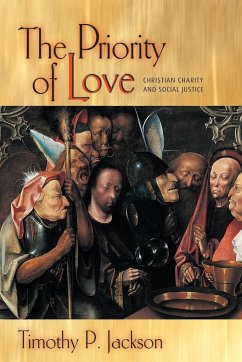This book explores the relation between agape (or Christian charity) and social justice. Timothy Jackson defines agape as the central virtue in Christian ethical thought and action and applies his insights to three concrete issues: political violence, forgiveness, and abortion. Taking his primary cue from the New Testament while drawing extensively from contemporary theology and philosophy, Jackson identifies three features of Christian charity: unconditional commitment to the good of others, equal regard for others' well-being, and passionate service open to self-sacrifice for the sake of others. Charity, prescribed by Jesus for his disciples and named by Saint Paul as the "greatest" theological virtue, is contrasted with various accounts of justice. Jackson argues that agape is not trumped by justice or other goods. Rather, agape precedes justice: without the work of love, society would not produce persons capable of merit, demerit, and contract, the elements of most modern conceptions of justice. Jackson then considers the implications of his ideas for several questions: the nature of God, the relation between Christian love and political violence, the place of forgiveness, and the morality of abortion. Arguing that agapic love is to be construed as a gift of grace as well as a divine commandment, Jackson concludes that love is the "eternal life" that makes temporal existence possible and thus the "first" Christian virtue. Though foremost a contribution to Christian ethics, Jackson's arguments and the issues he takes up will find a broader readership.
Hinweis: Dieser Artikel kann nur an eine deutsche Lieferadresse ausgeliefert werden.
Hinweis: Dieser Artikel kann nur an eine deutsche Lieferadresse ausgeliefert werden.








